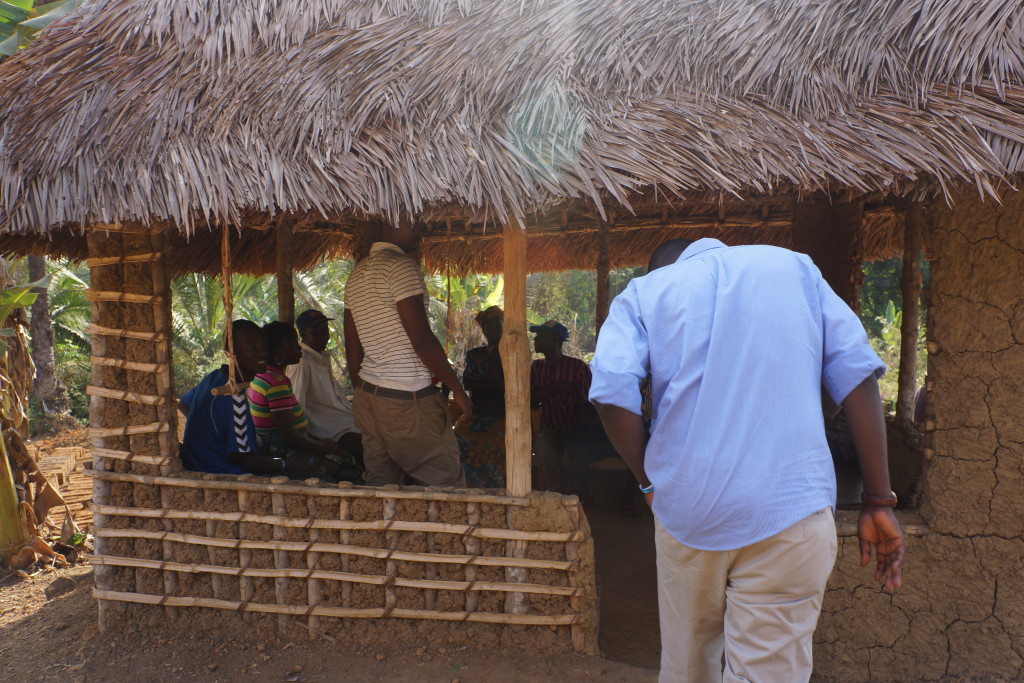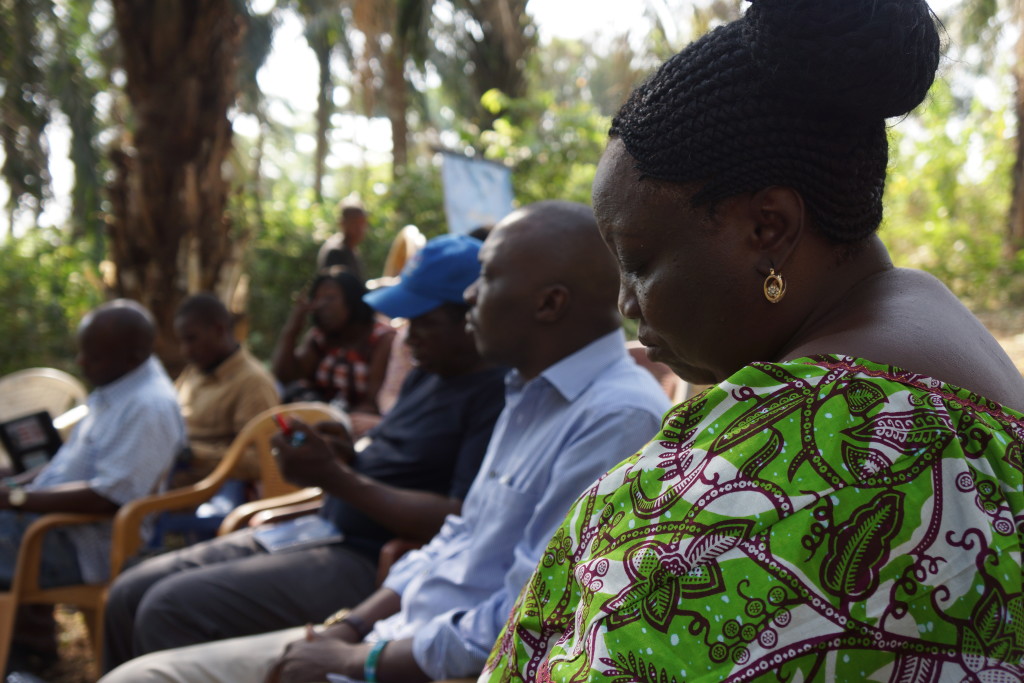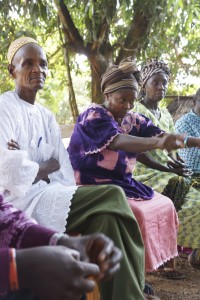Adapted from the original written by Jina Moore.
Good leadership is critical to the success of any program. But when a process is meant to be community-owned and led, the kind of leadership required to support and sustain that process is unique.
Fambul Tok has pioneered living out this kind of leadership in practice for over 8 years, so it exemplifies the ways inside-out leadership is altogether different, and often counter-cultural. Here are just two examples of that difference.
Across Sierra Leone, there is a powerful notion of the “big man.” A big man is someone who is important, often because of his title or his wealth, and who is accorded respect based almost solely on his status in society. In Fambul Tok, men⎯and women⎯become “big” through their deeds. Fambul Tok leaders earn the respect of their communities because of their willingness to serve those communities, not because their social position or their riches attract attention. Village by village, Fambul Tok is redefining what it means to be “big.”
Earning the respect of communities requires spending time with them. Fambul Tok leaders dedicate hundreds of hours to listening to communities. In a country with poor roads, simply getting to a remote village is a challenge. From paramount chiefs to section volunteers, the men and women who make Fambul Tok happen put in the time it takes to get there, and then they do more. They spend hours listening to villagers to better understand what each community wants to achieve and what it needs to get there. Traditionally, being a leader has meant the people come to you. In Fambul Tok, being a leader means you are constantly going out, seeking ways to listen to and help others.

Fambul Tok staff gathers community members in Pujehun District, Sierra Leone.
Paramount Chief Alfred Ndomawa Banya of Kongbora chiefdom in Moyamba District exemplifies this kind of leadership as the Fambul Tok District Chairman in Moyamba. “It takes a lot of skill to get people together,” Chief Banya notes. “You don’t go in and make yourself a boss. You cannot do it in a harsh way. You want to know their likes and dislikes, to get to know them, to make yourself very simple, and then you will be accepted. The moment they accept you, they will talk freely. And whether it takes two or three days, Fambul Tok will be there to make sure somebody starts talking.”
For an in depth portrait of an exemplar of a local peacebuilding leader, you can read Chief Maada Alpha Ndolleh’s story here.

Mama Isatta Ndolleh, District Chair Lady in Kailahun District, at leadership elections, February, 2012
Blog banner image (c) Sara Terry for Catalyst for Peace. Other photos by Libby Hoffman


